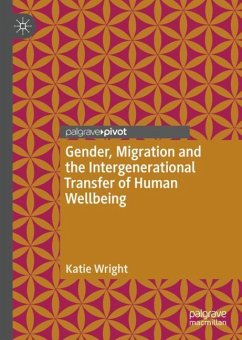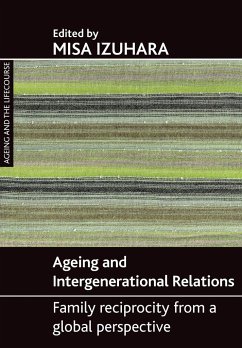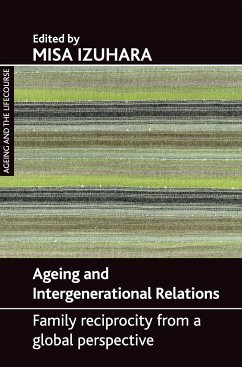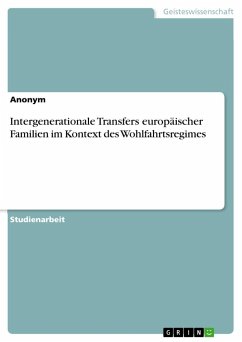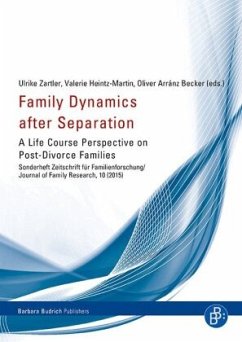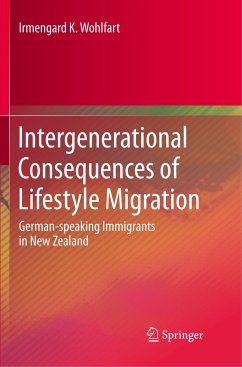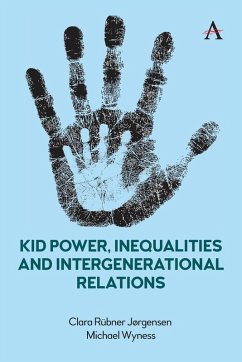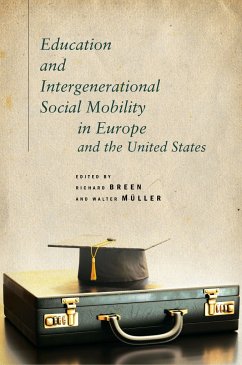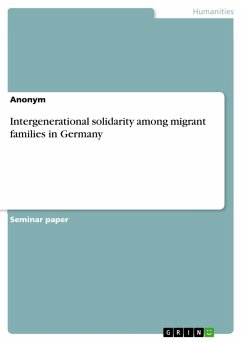
Intergenerational solidarity among migrant families in Germany

PAYBACK Punkte
0 °P sammeln!
Seminar paper from the year 2018 in the subject Sociology - Relationships and Family, grade: 1,0, Humboldt-University of Berlin (Institut für Sozialwissenschaften), course: Mikrosoziologie und Demografie, language: English, abstract: As intergenerational bounds differ due to cultural context, the research questions in this study will be, if (1) family solidarity changes with migration, (2) will be adapted from 2nd generation migrants and if (3) a strong family cohesion could create a cultural conflict in which the 2nd generation experiences it as a burden. After an introduction to the theoret...
Seminar paper from the year 2018 in the subject Sociology - Relationships and Family, grade: 1,0, Humboldt-University of Berlin (Institut für Sozialwissenschaften), course: Mikrosoziologie und Demografie, language: English, abstract: As intergenerational bounds differ due to cultural context, the research questions in this study will be, if (1) family solidarity changes with migration, (2) will be adapted from 2nd generation migrants and if (3) a strong family cohesion could create a cultural conflict in which the 2nd generation experiences it as a burden. After an introduction to the theoretical background of family solidarity, acculturation and cultural conflict, the research question will be examined empirically using the German Ageing Survey (GAS) database from 2014. Finally, a conclusion and an outlook resulting from these findings will be given. In recent years, family sociology was taking a specific focus on several topics, e.g. fertility, family forms and labour division in partnership. One other central research field were intergenerational relationships. Due to longer life expectancy, the increased shared lifetime of different generations has become more important than ever before. Intergenerational solidarity, the character of relationships between family members of different generations, can differ in terms of socio-economic status, education or cultural context. Especially for migrants, intergenerational relationships become much more important and the family often works as a ¿safe haven¿, while other social contacts were left behind in their home country. In 2003, half of the 7.3 million foreign citizens in Germany had their origins in one of the recruitment countries (Italy, Greece, Turkey, former Yugoslavia, Spain and Portugal) and mainly migrated between 1955 and 1973. Meanwhile the 4th generation is growing up in Germany and their great-grandparents are now belonging to the retired workers.




